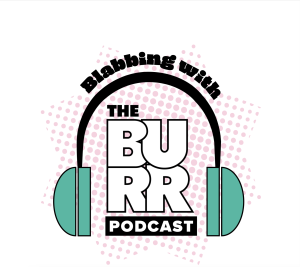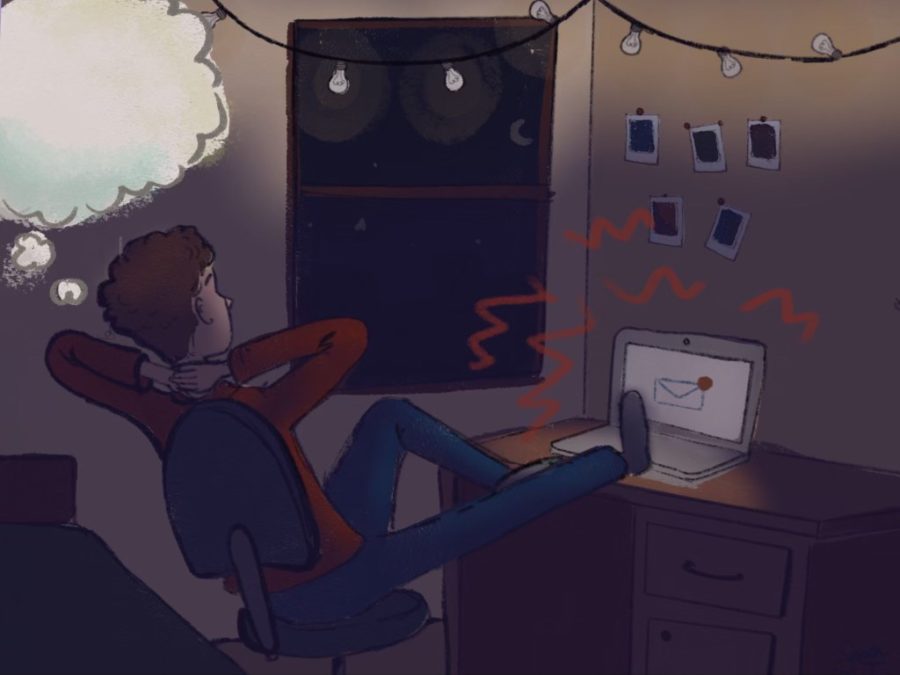Illustration by Sarah Thompson
Hello, and welcome back! Hopefully you enjoyed your break! With only two more weeks, I must admit that I am quite excited for this semester to come to a close. To say the least, this semester has undeniably been a learning experience for me. I’ve experienced my ups and downs, and likewise, I’ve been able to grow and develop into a better student and individual. While I wish I could type out all the different lessons and experiences I’ve gained over the past few months (believe it or not, it has been a lot), my desire revolves around sticking to the theme that I’ve been trying to portray in this blog. Ultimately, I want to share the various unforeseen benefits that I’ve personally experienced with procrastination.
To elaborate a bit more, school work unquestionably can be stressful, and if you’re anything like me, homework sometimes can bring out the inner perfectionist within us. Consequently, I often find the source of my procrastination to be stress from this idea of perfectionism. Sometimes I find myself reluctant to even begin an assignment because of how much pressure I put on myself. As a result, I’ve come to realize that I need to enact some sort of change in my mental preparation for the day and reevaluate my thought process.
To facilitate this, I recently began taking up meditation. Nothing too complex but rather simple breathing exercises and relaxation techniques to help control my thoughts and anxiety more. Have I used meditation as an excuse to procrastinate my homework at times? Absolutely, but it almost always improved my productivity. Similarly, I felt as if I was able to gain more clarity on how I should approach separate assignments and daily responsibilities in general. In this week’s post, my goal is to outline and highlight specific strategies and techniques I typically utilize for meditation.
Frankly speaking, most of these techniques are acquired. In other words, I’ve either picked them up from articles on the Internet or learned them from a friend. However, I would argue that I’ve molded each acquired technique into a form that suits my own practice and helps me the most. Likewise, I don’t always take on the same approach, but rather, I like to mix it up depending on how bad my anxiety truly is at that specific moment.
When I find myself stressing particularly more than usual, I personally prefer to meditate with complete silence. To truly enter a state of meditation and not fall asleep in the process, I try to sit on a chair with my legs arched at a right angle. Furthermore, I try to keep an almost perfect posture and let my arms either fall to my side or put them on my knees. With a timer usually set anywhere between five to 10 minutes, I begin by generally just focusing on my breathing and closing my eyes. As cliche as it sounds, breathing in through my nose and out through my mouth undeniably allows me to control my breathing the most efficiently. On a similar note, I also try to inhale for four, hold for four, exhale for four and hold again for four. This usually lets my heart rate slow back to normal.
After focusing on my breathing for a bit, I enjoy shifting my attention specifically to my thoughts. Although it seems counterintuitive, I try to identify every single thought running around aimlessly in my brain. With each breath in, I focus intensely on these thoughts.As I breathe out, I try to symbolically envision blowing out all those thoughts and worries. The more involved I become in this meditative state, the more I find my mind becoming blank (which is a good thing). Eventually, I begin to notice how my head and body feel in the current atmosphere of the room. Typically, my head feels warm and heavy while my body feels still and at peace. If you begin to achieve a sense of balance and inner harmony, that’s when you can conclude you’re on the right path. Comparably, when the timer suddenly goes off and startles you, that’s how you know you succeeded in freeing your mind at least a bit.
For situations where I’m not necessarily stressed but find myself struggling to get any work done or just focus in general, I listen to music. You wouldn’t know this already, because I’ve never mentioned it, but I am a music guru. I practically listen to anything. Sometimes, the best action for me to perform is to simply put on some good music. My favorite technique for this is to either put music on a speaker or put in my AirPods or headphones. This technique is very simple. After deciding what music to listen to, I then lie down flat on my bed, preferably on my back, and just close my eyes. Rather than just listening to the music, I try to pick it apart. I let my mind wander from each instrument and try to see if I can pick up every minute detail hidden within the song. As my mind shifts, I typically find my appreciation for the music goes up and find myself becoming increasingly happier. It might just be me, but music always knows how to make me smile.
With this music technique, I typically don’t set a timer. This is because my intent is to just get lost in time and the music. I must admit that sometimes this does result in a brief nap, but when I wake up, I always end up feeling refreshed and more motivated to do work. As a plus, it’s almost inevitable that I’ll end up discovering a new song or even become more fond of a song I didn’t enjoy initially.
For the last suggestion, I highly recommend simply writing down your thoughts more often. Coming from a political science major, dumping all of the various ideas and perspectives in my head onto paper unquestionably helps me to organize my mind. One word I would use to describe myself is a ponderer. Sometimes, I’m so lost in the sea of my thoughts that I honestly find it hard to focus on a simple conversation with my girlfriend (and I wish that was a joke). From questions revolving around political and economic institutions to simply what I want to do with my life, my mind seemingly never wants to take a break. Consequently, I found typing out my thoughts extremely helpful. Not only does it help me find more clarity in my mind, but writing down my thoughts typically leads to further elaboration of ideas that even help me understand concepts in my classes. Taking advantage of this technique so frequently, I now write in an almost 3-page document titled “Inquiring Curiosity,” which I have opened on my computer even in the middle of class. Taking my advice, you’ll genuinely be surprised what your mind comes up with.
To wrap up this week’s blog, I feel obligated to make it clear that these techniques work best for me. Everyone irrefutably will find various versions that work better for them, but it’s still nice to use these techniques as a possible template or starter for your meditation. As a side note, another indirect goal of this blog post is to promote mental health. Meditation is not only important but necessary in many ways. I believe that we are often too hard on ourselves and seemingly refuse to give ourselves a break. This is another reason why I try to highlight the unexpected benefits, and even importance, of procrastination. Rather than always trying to determine what’s due for school and what’s not, try to find more balance in your life. Now is the best time to start.











